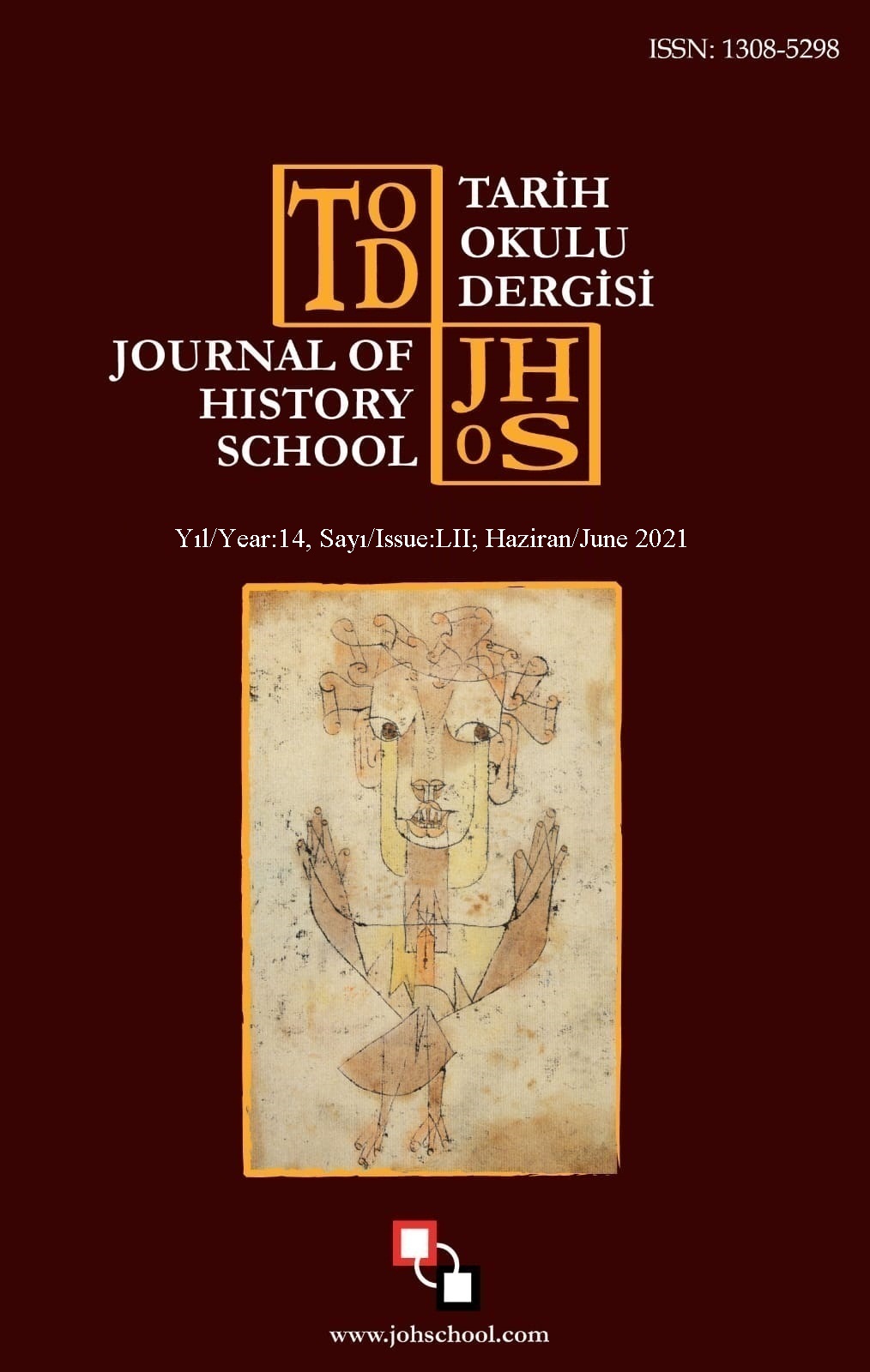Author :
Abstract
Hemen her toplumda fahişelik, kökleri çok eski tarihlere değin ulaşan bir iş koludur ve toplumların karakterine göre işlevi ve konumu farklılıklar göstermektedir. Bu bağlamda son derece katı şekilde kadınları baskılayan ve perde arkasında tutan Antik Yunan kültüründe de bu meslek grubunun pek çok sınıfa ayrılarak karşımıza çıkması şaşırtıcı değildir. Ancak yine de ‘hetairalık’ gibi farklı ve tanımlanması güç, statü anlamında bu mesleğe ait diğer gruplardan oldukça ileride, soylu kadınlardan çok daha özgür ve eğitimli bir sınıfın ortaya çıkışı dikkate değerdir. Ancak Antik Çağ’da hetairalık üzerine yapılan değerlendirmeler genellikle ünlü hetairaların hayatlarının derlenmesi ile sınırlı kalmış ve hetairaların varlığına toplumsal bütünün bir parçası olarak yaklaşılmamıştır. Bu çalışmada amacımız, hetairaların antik kaynaklar ışığında hem tarihsel kimliğinin irdelenmesi hem de Antik Yunan toplumunun yapısı itibariyle neden hetairalık kurumunu üretmiş olabileceğinin toplumsal cinsiyet ilişkileri kuramı bağlamında bir değerlendirmesinin yapılmasıdır.
Keywords
Abstract
Prostitution is a profession with its origins dating back to antiquity in almost every culture, and its purpose and status vary according to society’s characteristic. Within this framework, it is not a surprise, in ancient Greek culture, which oppresses woman in a rigorous way and holds behind the scenes, to see this career group divide into many classes. However, the advent of a class like “hetaira” which is distinct and hard to define, quite well ahead of other classes belonging to this profession in terms of status, far freer and more educated than noblewomen, is well worth the attention. However, hetairism assessments in antiquity were mostly restricted to the compiling of the lives of famous hetairas and the presence of hetairas was not approached as part of the social whole. In this study, our aim is to investigate the historical identity of hetairai in the light of ancient sources and assess why ancient Greek civilization might have formed the hetaira institution within the framework of the theory of gender relations.
